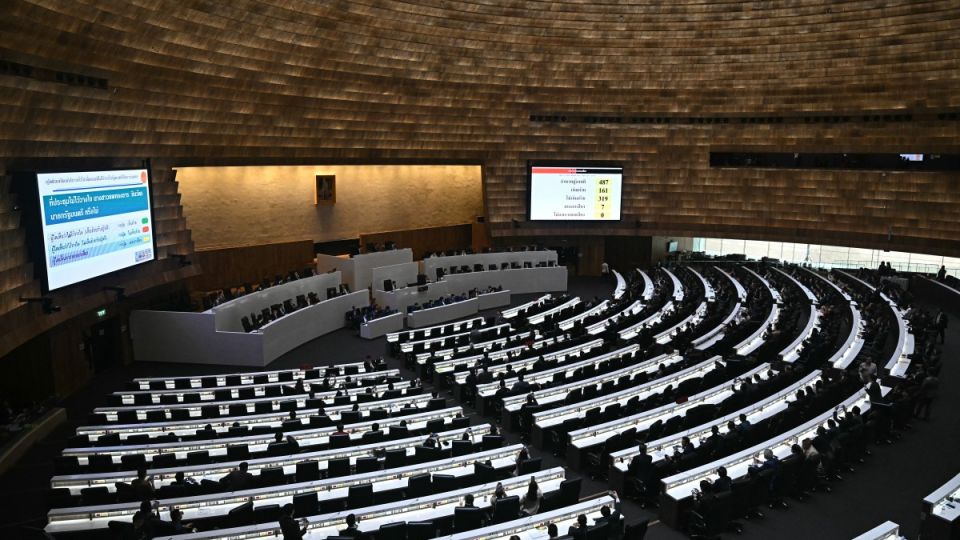September 4, 2025
BANGKOK – The political scene in Thailand has been thrown into chaos after Deputy Prime Minister Phumtham Wechayachai, acting on behalf of the Prime Minister, announced the dissolution of parliament.
He claimed that the system had become “distorted and is not proceeding as it should be,” citing a political stalemate that threatens to undermine economic confidence.
The move comes after the Bhumjaithai and People’s parties, having agreed to form a government, failed to create a stable, unified coalition.
This unprecedented breakdown has created a three-way split in Thai politics, with the Bhumjaithai Party leading a minority government, the Pheu Thai Party acting as the opposition, and the People’s Party playing a complicated dual role.
Phumtham stated that this situation was not only causing political unrest but also directly impacting the country’s economic trust.
He warned that if confidence was not quickly restored, the nation’s existing economic issues would be exacerbated.
Following consultations with legal experts, the decision was made to dissolve the legislature and hand power back to the people through a fresh general election.
The latest dissolution, confirmed on 2 September 2025, marks the 15th time in Thai history that the government has taken this drastic step.
A review of data from the Parliamentary Information Resource Centre shows that the measure is a recurring response to political instability, with 14 previous instances over the past 90 years.
Historically, these dissolutions have been driven by four main factors:
Defeated Motions and Instability (7 times): This is the most common reason, occurring when a government loses its majority in the House or faces severe internal rifts that make it impossible to govern effectively. Notable examples include the dissolutions in 1938, 1976, 1986, 1988, 1995, 1996, and 2011.
Policy or Legal Disputes (3 times): These dissolutions were sparked when the government attempted to push through controversial legislation, such as amnesty laws or constitutional amendments, which were met with widespread public and political opposition. This was the case in 1945, 1983, and 2013.
Political or Economic Crises and Protests (3 times): In these instances, the government dissolved parliament in the wake of major protests or economic upheaval, seeking a way out of a crisis by returning power to the public. This happened following the ‘Black May’ event in 1992 and during political crises in 2006 and 2013.
Political Strategy (1 instance): This rare type of dissolution is a tactical move to gain a political advantage, such as timing a new election to allow candidates to change parties. This occurred most recently in 2023.
Timeline of Parliamentary Dissolutions in Thailand
1938: Colonel Phraya Phahol Pholphayuhasena was defeated on a motion regarding the budget bill.
1945: M.R. Seni Pramoj faced conflict over the War Criminals Act.
1976: M.R. Kukrit Pramoj faced internal government conflict.
1983-1988: General Prem Tinsulanonda faced conflicts between the executive and legislative branches and divisions within the coalition.
1992: Anand Panyarachun’s government dissolved parliament due to a political crisis (Black May).
1995-2000: Chuan Leekpai and Banharn Silpa-archa’s governments dissolved parliament due to administrative conflicts and coalition rifts.
2006: Thaksin Shinawatra’s government dissolved parliament due to a political crisis (protests demanding his resignation).
2011-2013: Abhisit Vejjajiva and Yingluck Shinawatra’s governments dissolved parliament due to coalition divisions and a social crisis.
2023: General Prayut Chan-o-cha’s government dissolved parliament due to executive-legislative conflict and in preparation for a new election.
The history of parliamentary dissolution paints a picture of a nation often forced to reset its political course.
As the country prepares for another election, all eyes are on whether this latest act of dissolution will resolve the current impasse or simply add another chapter to Thailand’s turbulent political story.


